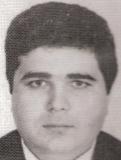Ask anyone in law enforcement how to end the problem of Long Beach DUI, and they will tell you that we need better enforcement, more measurement of the problem, better education and tools for law enforcement, drivers, road engineers and policymakers. These are good points. And if we did indeed measure DUIs better with richer metrics, chances are we could see a decline in Pasadena DUI, Glendale DUI, Burbank DUI and Los Angeles DUI arrests. That being said, statistics may not be as useful as many bright-eyed and bushy-tailed pundits believe they are. As the old saw goes, “there are lies, damned lies and statistics.”
Case in point: consider a small story published in a Kansas newspaper, the Wichita Eagle, last week: “Wichita police see spike in DUI arrests.” Over a relatively non-special weekend, police saw a jump in DUI arrests of more than 50% – 31 arrests, up from the usual 21 DUI arrests for the weekend. Traffic accidents also increased from 70 to 98. This is a statistically significant shift, by any measure, and law enforcement officials and local prognosticators jumped on the story to immediately develop explanations for the surge. Wichita Eagle posited “there are lot of outdoor activities at this time of year… and that increases the opportunities for drunk driving to occur.” That said, the magazine concluded with this statement: “DUI arrests were made all over Wichita…and couldn’t be linked to any specific event.”
What if the surge was just a random fluctuation? Sounds impossible?
It turns out that statistics don’t work quite the way that most people believe that they do. In any given city, on any given weekend, one might expect a surprising surge – 50% or even more – as part of the random background statistical noise. In other words, the spike need not tie into any specific event because it really was random. It only appeared to have meaning because the statistics were considered just in the context of Wichita instead of in the context of the whole nation.
Think about it this way: say you were to flip a coin six times in a row. What are the odds that you flip heads each time? Here is the quick answer: 1 in 64 (1/2*1/2*1/2*1/2*1/2*1/2). If you pull out a coin and ever do this experiment, chances are pretty good (63 out of 64) that you will not get heads every time. But 1 out of every 64 readers of this blog post will! And to that person, this post may seem like magic. In fact, it’s not. Random events can look like something more than random when viewed out of context. Thus, the spike in Wichita DUIs might not have been anything at all. It might have been something… but there is not really a clean and clear way to tell.
The same thinking should apply to study of Long Beach DUI statistics.
On a more practical note, if you are in need of the services of an experienced Los Angeles criminal defense attorney, Long Beach’s Kraut Law Group Criminal & DUI Lawyers, Inc. (444 West Ocean, Suite 800 Long Beach, California 90802 Phone: (562) 531-7454) may be able to steer you in a good direction. Attorney Michael Kraut is an experienced prosecutor who is respected by legal peers and by major news media as a maven of Los Angeles DUI law. He can help you understand your rights, develop a strategy, and ensure that you make smart decisions going forward to protect your rights as a defendant.
 Los Angeles Criminal Defense Attorney Blog
Los Angeles Criminal Defense Attorney Blog










